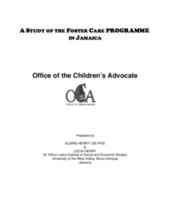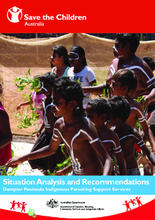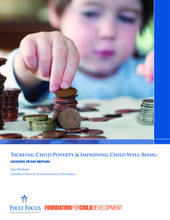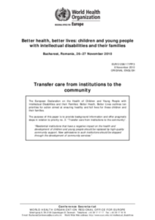Demographic Data
|
Sources: World Bank, UNICEF, UNDP HDR 2015, DHS 2013 |
Displaying 13231 - 13240 of 14555
This document provides a summary of the various forms of consultation undertaken during the revision of the Child Care and Protection Bill. It provides a basis for future law reform processes and presents an excellent example of how to include children and the public in the law-making process.
Findings of a study aimed to determine the effectiveness and the efficiency of the Foster Care Programme, assess the treatment of children in Foster Care, assess the adherence to child rights in the provision of Foster Care, provide policy direction for the enhancement of the Programme.
Shares recent findings on progress made and steps needed to achieve an AIDS-free generation through universal access to HIV prevention, treatment, and social protection
The purpose of the toolkit is to help UNICEF country teams and their partners to enhance the overall child protection dialogue and programming, with a particular focus on developing system capacity.
This report, published by Save the Children Australia, analyzes the situation of the parenting support services for Indigenous communities in the Dampier Peninsula of Australia.
This paper, written for a US audience, describes recent efforts to reduce child poverty by a peer country, Britain. Drawing on research carried out over the past decade, this paper summarizes what we know about Britain’s war on poverty, their likely next steps, and implications and lessons for the US.
In this recent opinion-editorial, Ucembe recounts the deeply personal experience of being raised in a Kenyan children’s home and his reflections on the harmful impacts of institutional care on children’s development and psychosocial wellbeing.
This report examines the impacts of HIV on the care choices of children, exploring how HIV affects whether or not children can remain within parental care, and on the alternative care options open to them.
"In Cambodia, as in other parts of the globe, orphanages are a booming business trading on guilt," writes Ian Birrell in this article for the Guardian that discusses the harms of orphanage tourism.
The purpose of this paper is to provide background information and offer pragmatic steps in relation to priority no. 3 of the European Declaration on the Health of Children and Young People with Intellectual Disabilities and their Families: “To transfer care from institutions to the community”. The paper was produced in preparation for the conference in Bucharest, Romania 26-27 November, 2010.








